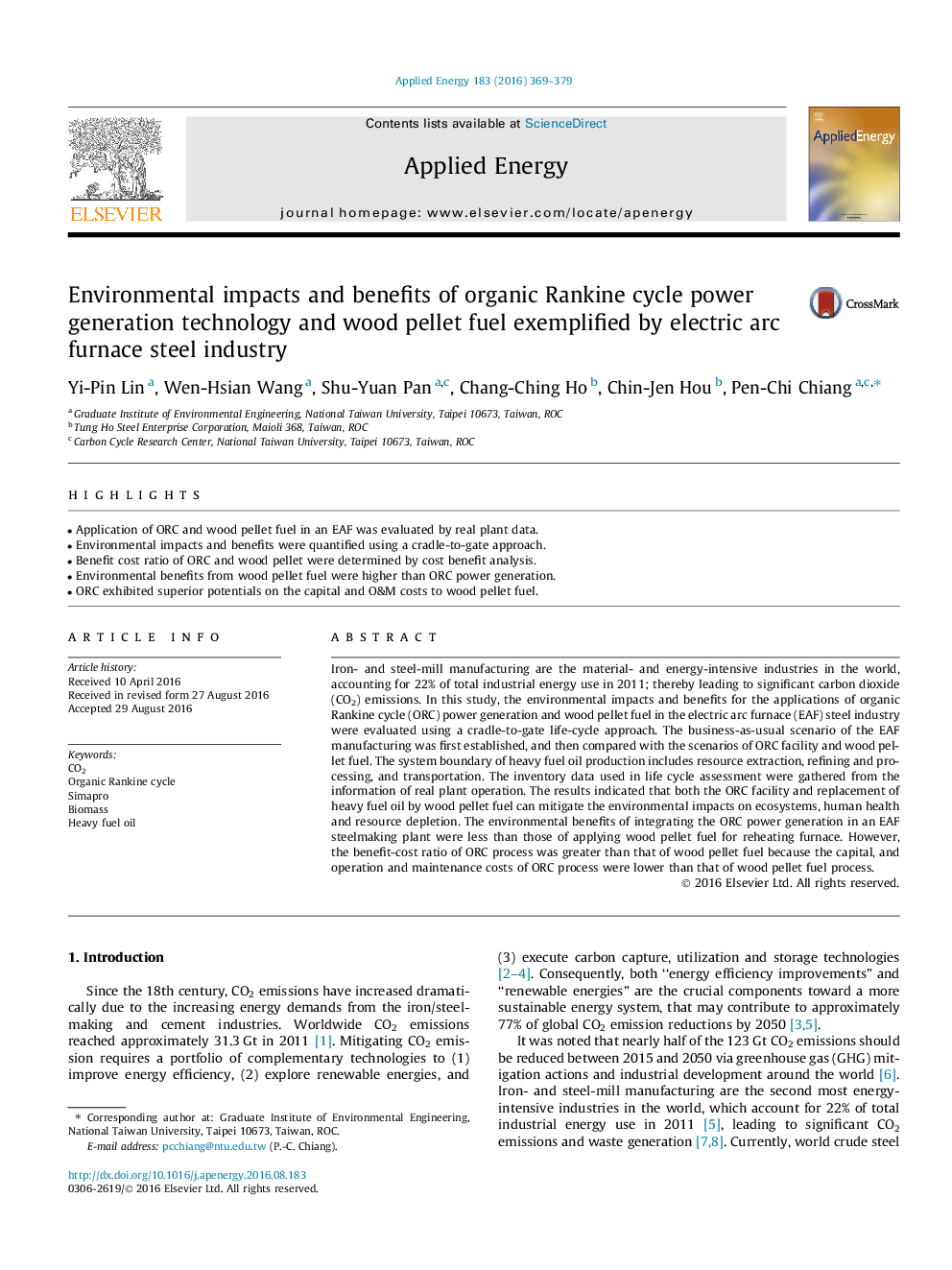| Article ID | Journal | Published Year | Pages | File Type |
|---|---|---|---|---|
| 4916581 | Applied Energy | 2016 | 11 Pages |
Abstract
Iron- and steel-mill manufacturing are the material- and energy-intensive industries in the world, accounting for 22% of total industrial energy use in 2011; thereby leading to significant carbon dioxide (CO2) emissions. In this study, the environmental impacts and benefits for the applications of organic Rankine cycle (ORC) power generation and wood pellet fuel in the electric arc furnace (EAF) steel industry were evaluated using a cradle-to-gate life-cycle approach. The business-as-usual scenario of the EAF manufacturing was first established, and then compared with the scenarios of ORC facility and wood pellet fuel. The system boundary of heavy fuel oil production includes resource extraction, refining and processing, and transportation. The inventory data used in life cycle assessment were gathered from the information of real plant operation. The results indicated that both the ORC facility and replacement of heavy fuel oil by wood pellet fuel can mitigate the environmental impacts on ecosystems, human health and resource depletion. The environmental benefits of integrating the ORC power generation in an EAF steelmaking plant were less than those of applying wood pellet fuel for reheating furnace. However, the benefit-cost ratio of ORC process was greater than that of wood pellet fuel because the capital, and operation and maintenance costs of ORC process were lower than that of wood pellet fuel process.
Related Topics
Physical Sciences and Engineering
Energy
Energy Engineering and Power Technology
Authors
Yi-Pin Lin, Wen-Hsian Wang, Shu-Yuan Pan, Chang-Ching Ho, Chin-Jen Hou, Pen-Chi Chiang,
